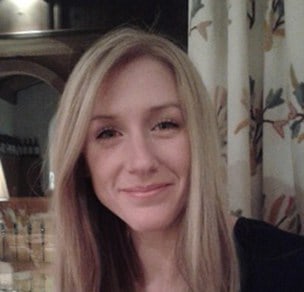Name: Zoe Kelson
Position within IMA: CMath, FIMA, Council member
Undergraduate Degree: BSc in Mathematics, Operational Research and Statistics, Cardiff University
PhD: Modelling the progression of treatment scenarios in the HIV/AIDS epidemic, Cardiff University
Where do you work? The Smith Institute for industrial mathematics and system engineering
What’s their main role?
We are a small independent company, limited by guarantee. Our role is to help our clients in business and government to assess feasibility, de-risk and make informed decisions by building mathematical models to assess as-if and explore what-if scenarios.
What is your role?
I am a Mathematician and Business Development Manager.
How long have you done this job?
4 years
How important is maths to this?
The mathematical sciences play and will increasingly play a vital role in all aspects of our lives.
The next few decades will see fundamental changes in the way we live, work and communicate. The mathematical sciences will have ever greater influence on shaping how we interact with friends, colleagues and neighbours, on the goods and services that we use, on how we maintain our health, how we travel and how we consume natural resources.
Whatever these innovations are, they will be underpinned by mathematics. Research in mathematical sciences is happening right now and will be crucial to our future economy and social well-being. Rapid advances in capacity for computing and data handling are creating opportunities that can be exploited through the imagination and insights of mathematical scientists. Our work helps build upon the stunning successes of mathematics in understanding and predicting the behaviour of physical, biological, and social systems.
What are the best bits of your job?
Interacting with people from a wide variety of sectors and finding out about what’s important to them, what challenges they face and where they want to be in x years’ time.
It is during this information gathering stage of forming a relationship that I start to gain an appreciation for the system in which the person I am talking to lives and works. Perceiving the components and sub-systems, their interdependencies, and their uncertainty and variability. Understanding the primary and secondary objectives, the hard and soft constraints, and how all of these factors might change over time or under external influence. This is when it gets exciting as you can start to visualise how it all fits together, and where the mathematical sciences can help them achieve their goals.
What was your career path and how do you see this developing?
After completing my PhD I spent a few years in the finance industry, working as a Decision Science analyst at HBOS plc., building models for credit card risk and marketing strategies. I then returned to academia as a Research Associate in the School of Medicine, looking at enhancing the diagnosis of child abuse by investigating patterns of injury. This is when I started to get enthused by forensic and medical applications of mathematics and statistics. I also lectured in statistics at the School of Mathematics, Cardiff University.
Right now, I am very much enjoying facilitating knowledge transfer of the mathematical sciences in industry and the variety and breadth of applications that I am currently involved in means I am unlikely to get bored! From statistical training of engineers, to optimising logistical efficiency for retail and transport markets, to communicating uncertainty and risks of rare events, to assessing feasibility of new products for manufacturers, to providing decision support for policy-makers, to running a programme of mathematical internships, to responsible innovation in the Internet of Things, to strategizing global initiatives for disaster risk recovery… mathematics is pretty unique in its universal outreach!
Why is maths important to you?
It’s everywhere!
Why did you join the IMA?
I joined the IMA to help enrich mathematical culture in the UK and beyond with the aim that individuals and organisations have confidence in mathematics and readily turn to mathematical approaches to better understand uncertainty and solve problems.
What has the IMA done for you?
The IMA has helped me to meet other like-minded people, and provided a mechanism for which I can promote and celebrate mathematics.






